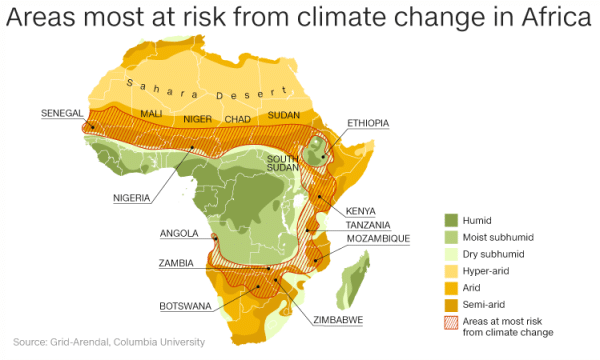Agenda 2063: The Africa We Want.
By John Moono

The development of the whole of the African continent has been the narrative Africans have been working tirelessly to achieve. The Africa We Want started with Nationalism agenda way back in the 20th century, during the colonial period when most African countries were under colonial powers. When the emancipation of the African continent was fully achieved by Africans, the continent body was given more impetus to ensure that the continent was a developed place for all to marvel.

When the Pan- African political ideology gave birth to the Organisation of African Unity in May of 1963, the organisation was formed on principles of:
1. Sovereign equality between all member states
2. Non-interference in the internal affairs of the member states
3. Respect for the territorial integrity of every state and its right to independent existence
4. Peaceful settlement of disputes by negotiation, mediation, reconciliation and arbitration
5. Non-alignment and
6. Dedication to the total liberation of African territories.
The blueprint of the Continental Bloc lay in the sixth principle on the total emancipation of African territories. The belief was that the African continent can only be fully developed when all territories are free from foreign occupation. Once a territory is free from colonial occupation, it meant that the territory would be economically free. Therefore, the Organisation of African Unity got fully committed to this cause of the total emancipation of the African continent
When the Organisation of African Unity was fully replaced by the African Union about 18 years ago at a conference held in Lusaka, Zambia, the focus of the continent bloc shifted to a more modern approach to the development of the continent with the blueprint of the new mandate named the Agenda 2063: The Africa We Want.
Agenda 2063 is Africa blueprint and master plan for transforming Africa into the global powerhouse of the future. It must be noted that for sometime, the continent has always drawn up wonderful and exciting plans of the transformation agenda of the continent, however, much of it has always been more theoretical than practical.

This Agenda 2063 is the continent’s strategic framework that aims to deliver on its goal for inclusive and sustainable development and is a concrete manifestation of the Pan-African drive for unity, self-determination, freedom, progress and collective prosperity pursued under Pan-Africanism and African Renaissance.
The Agenda 2063, purely the brainchild of the African continental bloc with the full understanding of the dynamics of the African environment and the development trends of the African continent.
The genesis of Agenda 2063 was the realisation by African leaders that there was a need to refocus and reprioritise Africa Agenda from the struggle against apartheid and the attainment of political independence for the continent which had been the focus of the Organisation of African Unity (OAU), the precursor of the African Union; and instead to prioritise inclusive social and economic development, continental and regional integration, democratic governance and peace and security amongst other issues aimed at repositioning Africa to becoming a dominant player in the global arena. This realisation comes as result of Africans taking self introspection on the way the continent has remained benighted despite the fact the continent is endowed with a lot of natural resources needed for the development of the African Continent
The African Union on it part just like the predecessor organisation the Organisation of African Unity has set its vision in motion through the Agenda 2063. The continent bloc realised the need to envision a long-term 50 year development trajectory for Africa that is important as Africa needs to revise and adapt its development agenda due to ongoing structural transformations, that to say the development of the continent should focus on the needs of the peoples of the continent; increased peace and reduction in the number of conflicts by completely silencing the guns across the continent; renewed economic growth and social progress; the need for people-centred development, gender equality and youth empowerment so as to prevent the young African falling into militia groups that are destabilising the peace of the continent; changing global contexts such as increased globalization and the ICT revolution which is a way encouraging African ideas in the technology sector.
The world is going digital and the African continent does not want to be left behind but the continent is striving to become the centre of excellence in technological advancement; the increased unity of Africa to make the continent a global power to be reckoned with and capable of rallying support around its own common agenda; and emerging development and investment opportunities in areas such as agri-business, infrastructure development, health and education as well as the value addition in African commodities
The realisation by the African leaders that the African continent needed to refocus the African Agenda into one that is more inclusive of the developmental needs of the continent by developing a developmental model that is only unique to Africa. This developmental model should clearly position the continent as the economic hub of the world.
As the continent soldiers on in pursuit of achieving the Agenda 2063, key to the achievement of the Agenda 2063 is infrastructural development. The continent has seen some massive infrastructural development across many territories in a bid to meet the targets of the Agenda 2063.
The Africa We Want is one that is going to have infrastructure that benefits the economic hub that the continent desire to be by the year 2063. Many African territories have embarked on the development of economic parks that would bring unique investment that would drive the economic agenda of the nation and rid the people of the continent of the ghost of poverty

The Agenda 2063 has flagship programmes that aimed at making the continent be more sustainable economically and environmentally. The continent body is alive to the should be alive to the consequences of climate change.
Neglecting the consequences of climate change on the environment of the continent can have detrimental effects on the social and economic development of the continent. Prudent environmental management is cardinal for the social and economic development of the continent. Environment Education and Financing of programmes to mitigate the impacts of climate change are an essential part of fiscal programmes of the continent body as embedded the flagship programmes. The continent is endowed with a lot of water bodies that are key to the Agricultural Development of the continent. Agriculture is the surest way the many peasant African communities can exercise the mobility out of poverty. Food production should be the focus of the continent whose population is not showing any signs of slowing down. The key to the much needed population growth in Africa is producing enough food for the people of the continent. Therefore, the continent should be more focused on sustainable agriculture that is going to put the continent as a more food secure continent.

The Africa We Want is going to be very achievable the very day Africa is going to exorcise the ghost of low self esteem and begin believing in the ideas of the sons and daughters of the soil. The Agenda 2063 is a great blueprint that Africans need to believe in and become more proactive in the achievement of the goals of this plan. Supporting the businesses of Africans and the entrepreneural ideas of the Africans is the sure path to economic greatness that Africa desire to achieve by the year 2063
The author of this article is
A Writer
Believer In the Pan African Ideology
An Advocate of Prudent Environmental Management
Contact John at [email protected]




